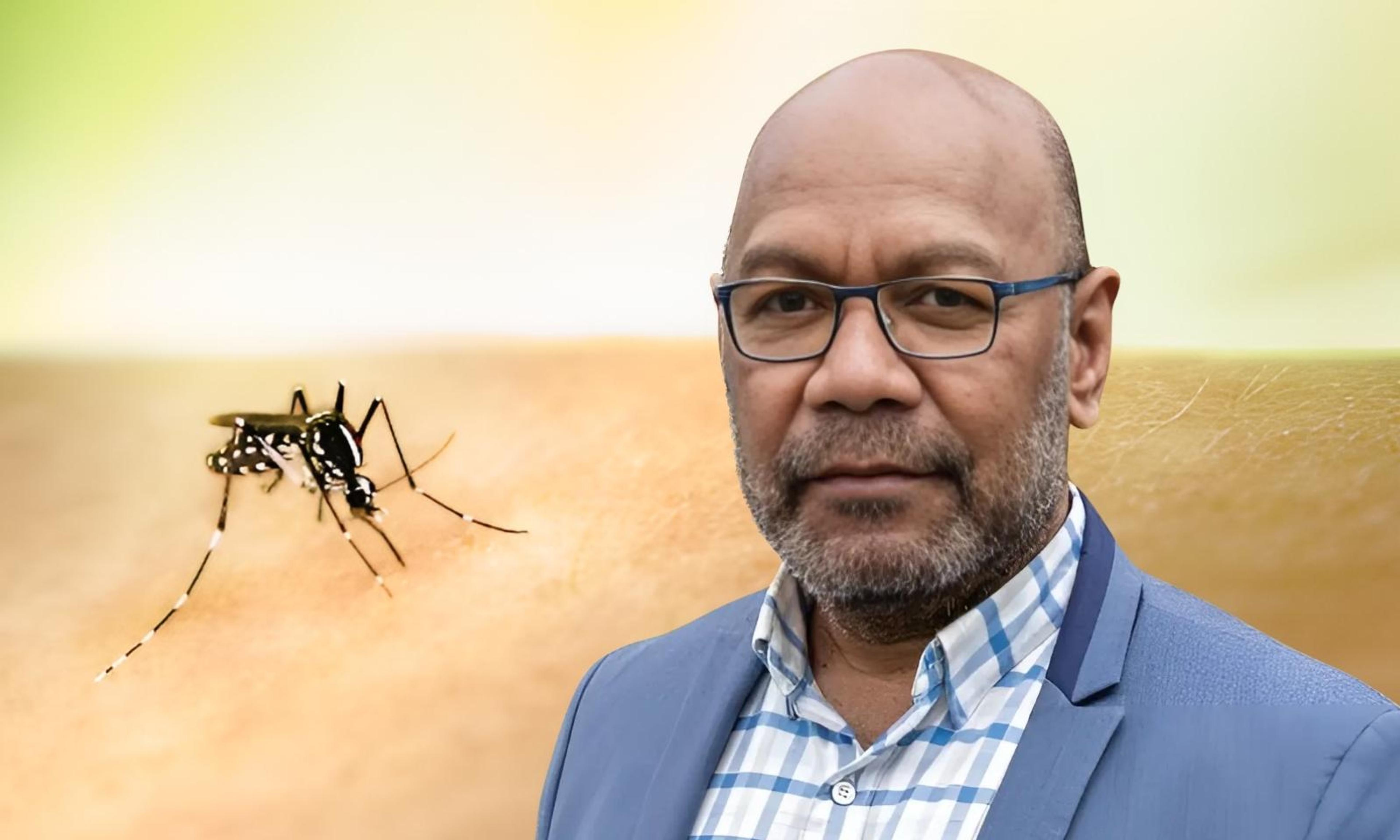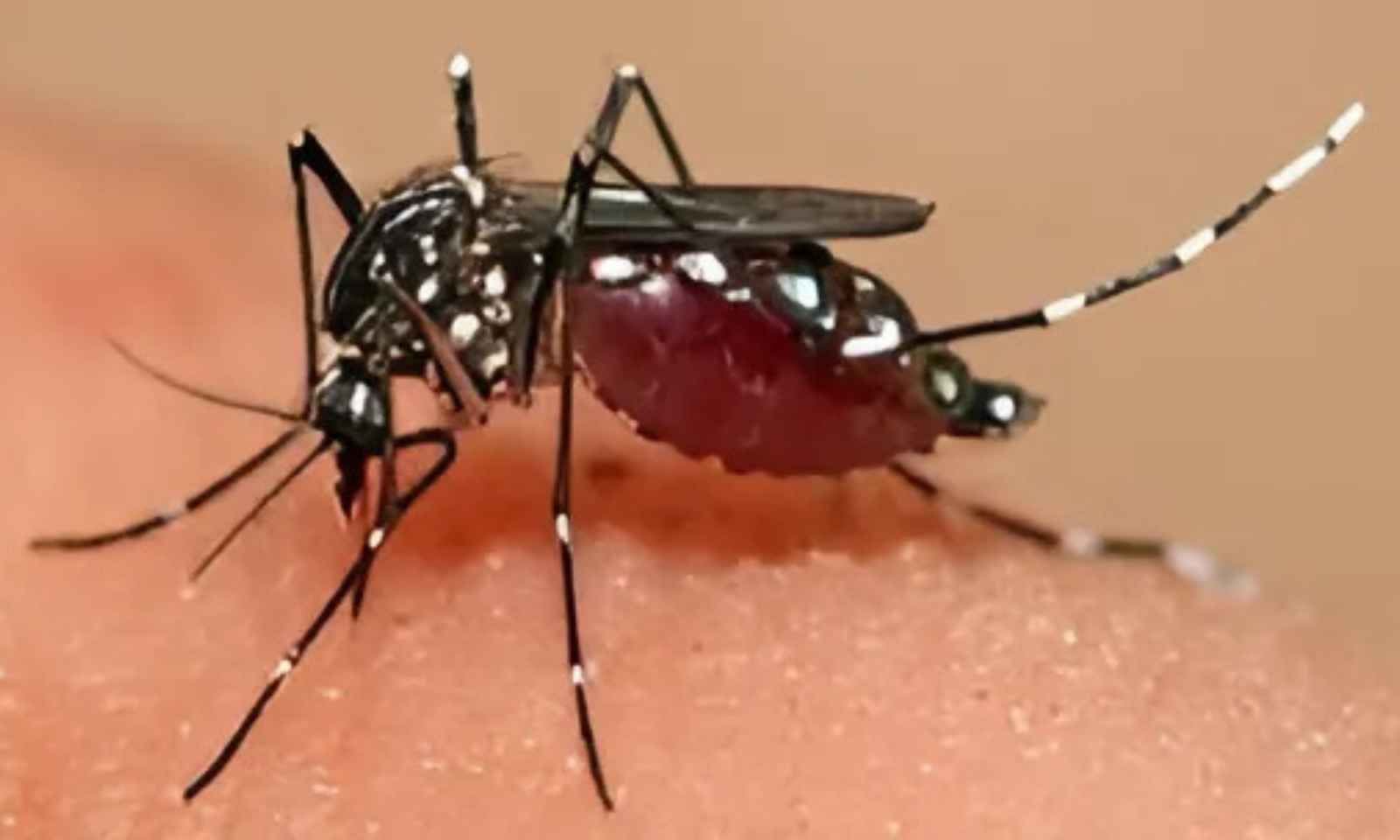

Dr Api Talemaitoga.
Photo/Unsplash/NZ Doctor//Ryan Anderson
‘Prevention is best’: GP urges village approach to fight dengue crisis
Dr Api Talemaitoga says clearing water containers and covering up can save lives, as WHO data shows the Pacific’s worst dengue figures since 2016.


Inked across lands: How Pacific tattoo art is thriving in Germany

US funding cuts threaten to 'dry up' future of Pacific scientists - expert



Inked across lands: How Pacific tattoo art is thriving in Germany

US funding cuts threaten to 'dry up' future of Pacific scientists - expert

A Pacific health expert warns that the recent outbreak of dengue fever in the region is “quite serious” and urgently calls for preventative measures to take focus.
According to the World Health Organization’s July report, there have been 18,766 suspected dengue cases in the Pacific, the highest number since 2016. They also confirmed 12,040 laboratory cases and at least nine reported deaths. Sāmoa’s government has clinically diagnosed over 5670 dengue cases since January, with 2619 of those confirmed in the past week.
Speaking to ‘Alakihihifo Vailala on Pacific Mornings, Dr Api Talemaitoga, a Christchurch-based General Practitioner, urges preventative measures through simple actions, such as clearing water containers, using repellent, and covering up.
“Prevention is paramount. When we are visiting the Pacific, staying with families, relatives or friends, please make sure that empty containers, like tins, plastic containers or even coconut shells, are not lying around collecting water,” Talemaitoga says.
“The mosquitoes love to breed in still water. And be very careful coming from New Zealand, Australia, or overseas. It's good to use insect repellent as well as a preventative measure, because dengue can be quite serious.”
He explains that dengue is transmitted through the blood of the Aedes mosquito, which is common in nations like Fiji, Sāmoa, Tonga, and Rarotonga. Talemaitoga says the mosquitoes carry the virus and spread it through bites.
Watch Dr Api Talemaitoga’s full interview below.
“One of the things people forget is at dusk, just when the sun is setting, the mosquitoes love to come out. So it's really important to be indoors, maybe with screened facilities like screened housing, and wearing loose clothing that covers as much of our body as possible with insect repellent as well.”
In Sāmoa, two strains of dengue are currently circulating: DENV-1, which accounts for 85 per cent of confirmed cases and DENV-2, which represents 15 per cent. Alarmingly, 71 per cent of confirmed infections are among children, with four confirmed deaths and one probable death.
There are also 115 hospitalised patients, with 64 discharged and 51 still receiving care. New Zealand recently dispatched a small health team and $300,000 worth of medical supplies to Sāmoa.
Meanwhile, Fiji recorded 13,702 suspected cases, followed by Tonga with 2087 and Mā’ohi Nui with 1079. Within Aotearoa, 208 dengue cases are recorded year to date, including 103 in Auckland, with about one third hospitalised, but no local mosquito species is capable of transmitting dengue.
Ministry of Health Sāmoa's dengue prevention video:
Talemaitoga outlines early dengue symptoms, which include fevers, headaches, and other related issues after mosquito bites. He also points out a less known effect on platelets in the blood.
“Platelets have to do with allowing the blood to clot. So if you cut yourself, you automatically form a clot to stop yourself from bleeding. But with dengue, your platelets can go dangerously low, and even cleaning your teeth causes bleeding in the gums.”
“People have died from dengue because they have had problems with internal bleeding. It’s quite hard on the health system. To process blood donations so that they get the platelets to be able to give people transfusion of platelets… takes quite a lot of resources.”
According to the Mayo Clinic, many people infected with dengue show no symptoms, and when symptoms do appear, they can be mistaken for other illnesses, such as the flu. Dengue symptoms typically arise four to 10 days after being bitten by an infected mosquito, and may include:
- High fever (104°F or 40°C)
- Headache
- Muscle, bone or joint pain
- Nausea
- Vomiting
- Pain behind eyes
- Swollen glands
- Rash

The Aedes mosquito that causes dengue fever. Photo/KidsHealthNZ
Talemaitoga clarifies that dengue is not spread from person to person and warns that people can become infected multiple times due to different strains. He calls for a collective response, urging villages to remove breeding sites and share public health advice to reduce mosquito populations and infection rates.
“We can all work together and support each other, our families in the islands and our friends. Share the public health message because getting rid of those containers, those receptacles that could collect water and bring mosquitoes, is good for everybody. Not just that family, but everybody in the village.
“Mosquitoes can fly quite a way looking for people to bite or to infect. So the public health message is really important because prevention is best. You'll avoid getting bitten, getting dengue potentially, by making sure that you're doing your bit to reduce the mosquito population.”
Health NZ advises seeking medical advice quickly if you experience dengue symptoms while travelling.
If you feel unwell within the first three weeks after returning home from a country where dengue is present, seek advice from your healthcare provider or call Healthline for free on 0800 611 116. Inform them about your symptoms and recent travel.